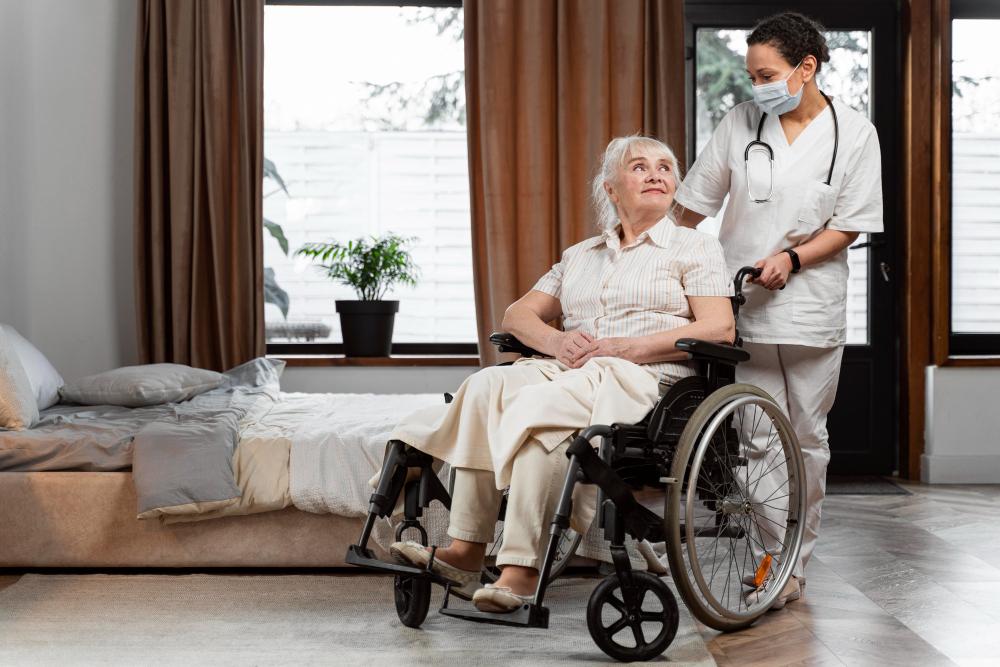Finding the right senior care for a loved one can be one of the most emotionally charged and complex decisions a family faces. With numerous care models available—from in-home assistance to skilled nursing facilities—understanding where to start your search and how to evaluate the options is crucial. Whether you're planning for the future or responding to a sudden need, being well-informed sets the foundation for the best long-term outcome.
In the United States, senior care is a rapidly evolving sector, impacted by demographic shifts, healthcare reforms, and changing family dynamics. With these changes comes the need for trustworthy, high-quality care providers. For example, families in Louisiana often consider facilities like the river ridge nursing home as part of their research into reputable senior care solutions in their region. But how do you assess facilities or services in your own locale?
This guide explores the most reliable resources and considerations when searching for reputable senior care options, offering practical advice, evaluation tips, and trusted sources to help you make informed decisions with confidence.
Key Points
-
Understand the various types of senior care available and their distinctions.
-
Learn where to begin your search for reputable providers.
-
Discover trusted online directories, government resources, and local agencies.
-
Gain insight into signs of quality care and red flags to watch for.
-
Explore the role of finances, insurance, and legal considerations in selecting care.
Types of Senior Care Options
1. Independent Living Communities
Designed for active seniors who don’t require daily assistance, independent living offers housing, social activities, and a sense of community. These facilities do not provide medical care but often include options like meal services, housekeeping, and transportation.
2. Assisted Living Facilities
Assisted living is ideal for seniors who need some help with daily tasks such as bathing, medication management, or dressing, but still want to maintain as much independence as possible. These communities offer a balance of care and autonomy.
3. Skilled Nursing Facilities (Nursing Homes)
These facilities provide 24/7 medical care by licensed professionals and are suitable for seniors with complex health needs or recovering from surgery or illness. When evaluating options, such as the aforementioned river ridge nursing home, it's essential to assess staff qualifications, facility cleanliness, and patient reviews.
4. Memory Care Units
Specialized for individuals with Alzheimer’s disease or other forms of dementia, memory care facilities offer structured environments and trained staff to ensure safety and support cognitive function.
5. In-Home Care Services
In-home care allows seniors to receive assistance in the comfort of their own homes. Services range from companionship and housekeeping to skilled nursing, often coordinated through home health agencies.
Where to Begin Your Search
1. Start with a Needs Assessment
Before diving into directories and reviews, identify the level of care your loved one needs. Talk to healthcare providers, social workers, and geriatric care managers to assess physical, emotional, and cognitive requirements.
2. Explore Trusted Online Directories
Websites like Medicare.gov's Nursing Home Compare, AARP, and Caring.com provide user feedback, inspection scores, and details on services offered. These tools help narrow your choices based on location, quality ratings, and amenities.
3. Contact Local Area Agencies on Aging (AAAs)
AAAs are community-based organizations that provide information on services, advocacy, and even financial guidance. They can connect you with vetted providers based on your zip code and specific needs.
4. Speak to Medical and Social Professionals
Doctors, hospital discharge planners, and social workers often have direct insights into local care facilities and professionals. Their experience can guide you toward facilities with strong reputations.
Evaluating Senior Care Providers
1. Tour Facilities In Person or Virtually
Always tour a facility before making decisions. Observe cleanliness, staff interaction with residents, security measures, and activity schedules. Many places offer virtual tours, which can be a good first step if you're out of state.
2. Ask the Right Questions
Prepare a list of questions covering staff ratios, training, emergency protocols, meal planning, and medical services. Don’t hesitate to ask for references or speak to current residents and their families.
3. Review Licensing and Accreditation
Check that the facility is licensed by the state’s Department of Health or equivalent regulatory body. Accreditation by organizations such as The Joint Commission or CARF (Commission on Accreditation of Rehabilitation Facilities) is a positive sign of quality.
4. Examine State Inspection Reports
Look for recent inspection reports and complaint histories. These are publicly available through state health departments and can reveal patterns of neglect or excellence.
Financial Planning and Legal Considerations
1. Understand the Costs
Senior care costs vary significantly depending on the level of care. Assisted living can range from $3,000 to $6,000 per month, while skilled nursing care may exceed $8,000 monthly. In-home care is generally charged hourly.
2. Explore Funding Options
-
Medicare: Covers short-term skilled nursing care and some home health services but not long-term custodial care.
-
Medicaid: Offers more comprehensive long-term care coverage for eligible low-income seniors.
-
Long-Term Care Insurance: Policies can help offset the costs of assisted living or in-home care.
-
Veterans Benefits: Programs like Aid & Attendance provide financial assistance for qualifying veterans.
-
Private Pay and Family Contributions: Many families cover costs through savings, home equity, or shared family funding.
3. Consider Legal Protections
Ensure that powers of attorney, advanced directives, and guardianship documents are in place. Consulting an elder law attorney can help ensure that your loved one’s rights and assets are protected.
Red Flags to Watch Out For
While many facilities provide top-quality care, it’s important to be vigilant. Warning signs include:
-
High staff turnover or underqualified personnel
-
Persistent odors or general uncleanliness
-
Lack of resident engagement or visible boredom
-
Unanswered questions or evasive responses from staff
-
Negative reviews or unresolved complaints with regulatory agencies
Making the Final Decision
After gathering information, touring facilities, and evaluating financial and emotional considerations, narrow down your top choices. Revisit your finalists, ideally bringing other family members or a healthcare advocate for additional perspectives. Take your time—choosing the right care environment has a profound impact on your loved one’s well-being and quality of life.
FAQ: Frequently Asked Questions About Senior Care Options
How do I know what level of care my parents need?
Begin with a professional assessment from a doctor, geriatric care manager, or social worker. They can identify cognitive and physical needs, guiding you toward the most appropriate level of care.
Can I trust online reviews of senior care facilities?
Online reviews are helpful but should be supplemented with in-person tours, state inspection reports, and professional recommendations. Look for consistent themes in reviews—both positive and negative.
What is the difference between assisted living and nursing homes?
Assisted living offers help with daily activities in a residential setting but does not provide round-the-clock medical supervision. Nursing homes, or skilled nursing facilities, offer 24/7 medical care for more serious health issues.
Are there senior care options for low-income families?
Yes. Medicaid covers a wide range of senior care services for eligible individuals. Additionally, local Area Agencies on Aging and non-profit organizations may offer subsidies or referrals to affordable programs.
What should I bring when touring a senior care facility?
Bring a checklist of questions, a notepad, and a trusted companion. Take note of your impressions, staff demeanor, and ask for printed materials or brochures to review later.
Is it better to keep my loved one at home?
Aging in place is often preferred emotionally, but it’s not always the safest or most practical solution. Evaluate the home environment, required level of care, and caregiver availability before deciding.
How do I check a facility’s licensing and complaints?
Most state health department websites offer searchable databases of licensed facilities along with inspection reports and complaint histories. You can also request this information directly from the facility.
What role does Medicare play in senior care?
Medicare typically covers short-term rehabilitative services and home health under certain conditions but does not pay for long-term custodial care in most cases. Supplemental insurance or Medicaid may be needed for extended services.
How far in advance should I plan for senior care?
It’s never too early to start planning. Even if your loved one is currently healthy, having a long-term care strategy in place can reduce stress and allow more time to make informed decisions when the need arises.


